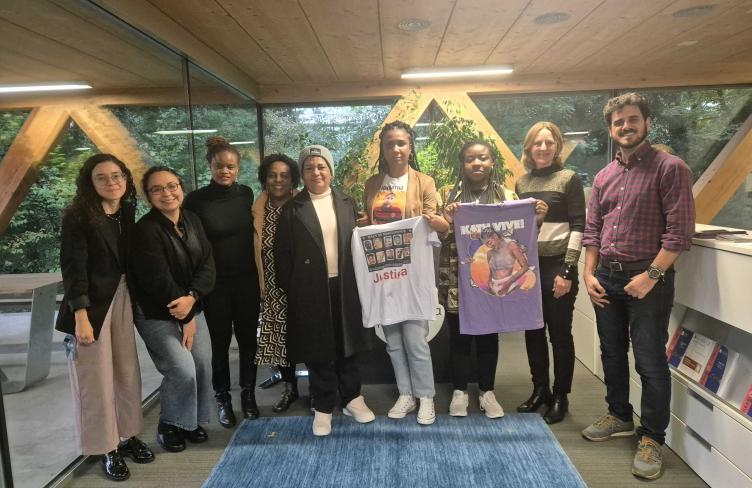
We know that promptly presenting a person who has been arrested before a judge is one of the most effective ways to prevent torture and ill treatment, as well as to safeguard their physical and mental integrity. However, the COVID-19 pandemic has made this even more evident, reaffirming the vital role of this practice in helping shed light on police violence, enforce accountability and fight impunity.
In March 2020, in-person judicial activities were suspended in Brazil to meet health and sanitary measures to prevent the spread of COVID-19. This included suspending judicial custody hearings.
New data shows an 84% drop in allegations and detection of torture and ill-treatment since custody hearings were suspended. Click on the interactive infographic to visualize the data:
Custody hearings have been gradually implemented in Brazil since 2015, in compliance with article 7 of the American Convention on Human Rights. Judges presiding over custody hearings are able to determine the legality of the arrest and decide whether the person should be sent to pretrial detention.
One of the great strengths of custody hearings is the potential to curb police violence. As detainees are presented before a judge within 24 hours of arrest, judges are able to ask about the conditions surrounding their arrest and to verify any evidence or signs of physical or psychologic torture or ill-treatment. In a country with one of the highest rates of police lethality in the world, and where torture is still used in the context of arrest and interrogation by police, external oversight of police conduct is absolutely crucial.
After the National Council of Justice authorised the temporary suspension of custody hearings in mid-March, a shorter and simplified procedure was established for judges to assess the legality of a person’s arrest. In the four months following the suspension of regular custody hearings, we have seen a severe setback in documenting and investigating torture and ill-treatment in the country.
Data just recently released by the National Council of Justice shows a drastic reduction in the number of complaints of torture and ill-treatment.
Official data collected during the six-months prior to the pandemic shows an allegation or identification of evidence of torture and ill-treatment was recorded in 8.98% of custody hearings. Since hearings were suspended, the figure has fallen to 1.42% - which represents an 84% decrease on notifications of torture and ill-treatment.
In the month of March, in the days preceding the COVID-19 pandemic, 11,900 custody hearings were held, resulting in the documentation of 1,033 reports or evidence of torture and ill-treatment. In the following four months, this number fell to 403 reports among 28,510 arrests made between 6 April and 20 May 20.
Such a striking fall in the number of complaints show how instrumental custody hearings are as a mechanism to shed light on police mistreatment.
“In custody hearings, face to face contact between the detainee and the judge is imperative,” said Marcos Faleiros, judge and coordinator of custody hearings in Cuiabá, in the state of Mato Grosso, Brazil.
“International treaties have entrusted judges with the responsibility to prevent torture and protect human dignity, and such responsibility cannot be transferred to any other state agent,” he said.
“In a country that abides by the rule of law, judges have as their main function, and the most important of all, to safeguard fundamental rights based on the Constitution and international treaties.”
APT advocacy for in-person custody hearings
On Friday 10 July, the National Council of Justice took a bold and principled stand to prohibit the use of videoconferencing for custody hearings. This decision was applauded by the APT and our partners. We joined forces to re-affirm the critical need for people to be physically present before a judge in such hearings.
In a letter to members of the Council, Barbara Bernath, APT Secretary General, stressed that “conducting custody hearing through videoconference would mean that the detainee would be heard in a hostile setting, either in a police station or a prison, surrounded by state security forces, including, potentially, the alleged perpetrator. The distance would make it impossible to verify whether the person in custody could be suffering any intimidation or coercion in order not to report any abuse.”
Custody hearings have yet to reach their full potential as a tool to prevent torture and ill-treatment in Brazil. Many detainees still do not feel safe to report torture or ill treatment in a courtroom in the presence of law enforcement officials. In addition, some judges still hold doubts regarding the veracity of allegations brought forward by detainees.
Data collected by independent observers shows a significant discrepancy with official numbers released by the judiciary. Research conducted by the Instituto de Defesa do Direito de Defesa found that 23.8% of detainees alleged violence or abuse by the police. Furthermore, abuse that leaves no immediate visible evidence is still commonly overlooked by judges, as many tend to rely solely on physical wounds or marks to acknowledge an allegation of torture or ill-treatment.
Despite these challenges, custody hearings are undeniably a positive step towards preventing torture in the country. The APT stands firm, along with its partners and the National Council of Justice, to build on the achievements over the past years, and ensure that in-person custody hearings are not compromised by the COVID-19 pandemic.


